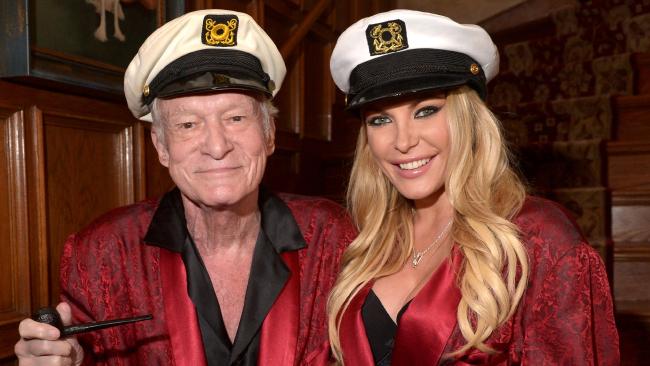Elliot Gaynon takes a look at the latest controversy surrounding the divisive Hugh Hefner, and asks if Jared Leto really is the best choice to play the late Playboy founder. Will his brand of ‘method acting’ bring nuance to the already questionable role?
The world is a truly terrible place. But did we really do so much as to deserve this? Did we really go that far? These questions flew and ricocheted within the cranial casings of many film fans when a certain piece of information was beamed to their phones from the depths of Hollywood. Jared Leto is set to portray Hugh Hefner in a new Brett Ratner-directed biopic. As if a scientist somewhere had exclaimed ‘Computer, give me the most sigh-inducing actor-director-subject combo possible’, the headline was almost laughably predictable in its ruffling of feathers.
There are a few problematic red lights here to get people sharpening their pitchforks. References to his supposed ‘sexual revolution’ permeate Hefner’s recent obituaries, prompting many to highlight the late Playboy founder as a sleaze who only respected women upon their submission to his narrow erotic gaze. Joining in the tributes was the director of this biopic, Brett Ratner, whose seeming adoration of Hefner and career-long absence of critical approval forebodes that this won’t be the nuanced, challenging portrayal its existence warrants. And, of course, Jared Leto’s brand of, well, ‘Jared Leto-ness’, is still particularly fresh in our minds following the media storm that was his Suicide Squad preparation.
And that’s where another annoyance of this headline lies; the revelation feels like a perfectly positioned foothold for the industry to climb in its commercial diluting of ‘method acting’.
I can see stories of Leto’s wild in-character sex parties filling the tabloids even now.
The method acting approach, pioneered by Stanislavski and initially popularised by actors such as DeNiro and Brando, is generally defined by an actor’s decision to ‘become’ rather than ‘imitate’. That mysterious, almost mystically-viewed technique has absolutely given rise to some of cinema’s best acting work. Daniel Day Lewis ‘went method’ for My Left Foot and There Will Be Blood; those performances went on to become synonymous with Oscar glory.
Yet, Jared Leto’s casting as Hefner amplifies the contemporary cheapening of this acting form. He’s a sugary, wham-bam rendition of the method actor; one of the most prominent showbiz stories of last summer concerned Leto apparently being a nightmare co-worker during the production of Suicide Squad. His quest to truly embody the maniacal ‘Joker’ role resulted in him isolating himself on set and sending seemingly-used condoms to fellow castmates, this act of brattish social suicide ultimately resulting in about 10 minutes of unremarkable screen-time. Since when did all that method commotion become so unrewarding in its output?

Leto’s antics support the view that modern-day actors’ use of the method approach can be perceived as bending it into a form of social and marketing capital. Given the availability of information to the public in these times of widely publicised production processes, method acting nowadays moves less toward serving the art and more toward serving the male actor’s sense of masculinity. In taking on activities which impact their social life, their bodies, their psychological well being, method actors harness a kind of performative suffering which aligns their work with that of more traditionally masculine labour. And in terms of relating ‘method’ to commerciality, you’d be hard-pressed to find a practicing Oscar contender whose anguish-filled process wasn’t placed at the core of their campaign.
There’ll no doubt be a fresh media furore surrounding Leto’s work as Hefner. He’s said himself that he’s keen to ‘play him’, to ‘understand him’, those words already filling my mind with cringe-inducing premonitions. I can see stories of Leto’s wild in-character sex parties filling the tabloids even now. What this signifies, though, is that increasing delegitimization of a once sacred approach in the name of what? None other than typical Hollywood egotism and excess. It’s almost charmingly fitting that a Hugh Hefner portrayal may stick the nail in method’s coffin.
Elliot Gaynon
(Image courtesy of Charley Gallay/Getty Images)

